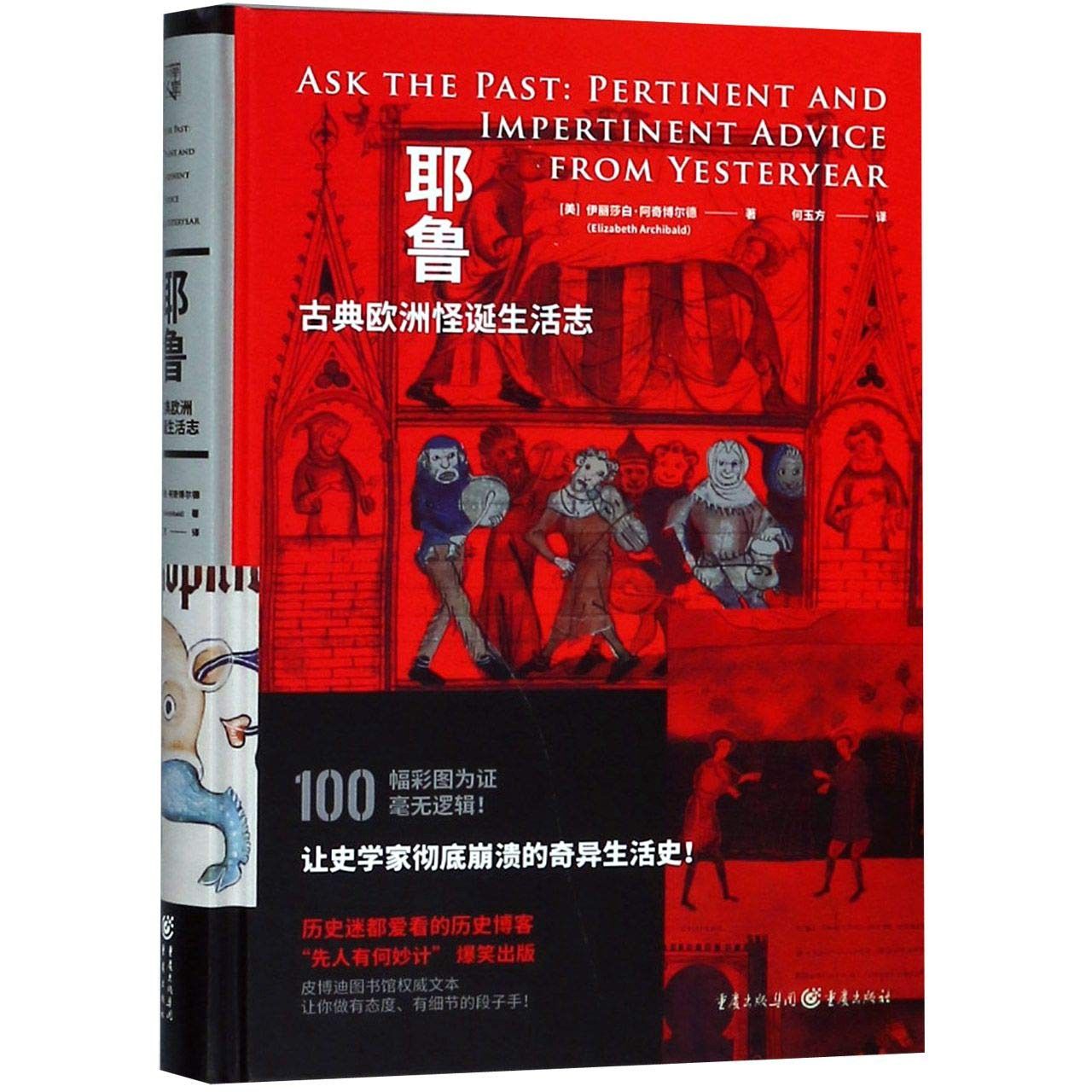【Reading】After reading Elizabeth P. Archibald's "Yale Classical European Bizarre Life"

If a friend hadn't reminded me, I would have completely forgotten about this book.
Both the traditional and simplified versions are translated by He Yufang. *
Taiwan's 2016 traditional version was translated as "Medieval Jokes at the Dining Table: Yale Historians Deciphering the Weird Life of Classical Europe" apparently preceded the simplified Chinese version in 2019. It should be Taiwan who sold the translation copyright.
The original title of this book is: "Ask The Past" (Ask The Past). Originally, the author, as a historian, collected some bean knowledge accidentally discovered in the process of historical research on social networking sites half-jokingly.
In fact, the content is not limited to the things on the table, and it is not even a cold joke (it must have been taken seriously at the beginning), but the "wisdom" of the ancestors (although imitation is not recommended). In contrast, the simplified version of the title is more reasonable.
The space is very short, and pictures are attached, which is very suitable for relaxing sketches after get off work. I can also pretend to be a young man, and I can talk a few words on the topic when chatting, and by the way, I can learn (laugh at) the food therapy of the ancients (?). Overall it's interesting.
I recommend it with four stars: ★ ★ ★ ★ ☆
The remedies in this book are really varied. Guaranteed not to be the most absurd, only more absurd.
What teaches you how to be Jesus walking on water (fans want to do the same thing as idols, it seems to be ancient and modern), teach you how to cut your toenails underwater like a seal (why?!), the era of no clock Teach you how to guess the time (you have a 1 in 3 chance! www), teach you how to bathe a baby with red wine and cream (I thought it was a cannibal recipe "Boiled Baby in Red Wine" www), and I don't know why judging the moon cycle is not good for looking at the sky, but telling readers to run and look at your cat's eyebrows. (Huh? Do cats have eyebrows?)
Thinking on the positive side is like knowing where your paper is not good, it means that you have made progress in your studies, and you can see the strengths and weaknesses. Perhaps we can laugh at the wisdom of the ancients because contemporary medicine has given us our backing. But can we guarantee that we are not really stupid? Look at all kinds of contemporary beauty remedies, in fact, not much less.
What surprised me the most was this: I knew that Plato and Aristotle were highly regarded in medieval Europe, and of course the main reason was that their theories helped the systematic construction of Christian theology.
However, I didn't expect that the medieval sex manual actually used the name "Aristotle" to raise its price!
(Could it be that Plato rejects sensual things too much, so it is not adopted as a code word?)
It is said that the top two best-selling adult books at that time were " Aristotle's Masterpiece " and " The Work of Aristotle, the Famous Philosopher " ! ! ! ! !
Omg! I really laughed!
It makes me wonder what is actually written in this sex manual with a noble name.
But on the other hand, in this way, it seems that men at that time can claim that they are familiar with Aristotle, and in modern times, everyone can say that they understand calculus (?), as for which Aris to read Dodd, I'm afraid it's tacit understanding of each other.
How to say, thinking about it this way, life in the Middle Ages does not seem to be as serious as imagined, and it is unexpectedly a learned and warm era? XD
Like my work? Don't forget to support and clap, let me know that you are with me on the road of creation. Keep this enthusiasm together!

- Author
- More